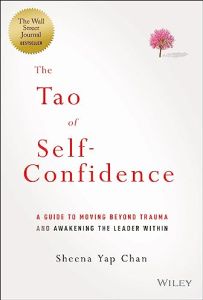
Recommendation
Asian women face unique pressure to succeed and be high performers while navigating harmful stereotypes that limit their careers. Podcaster Sheena Yap Chan encourages Asian women to prioritize their health and well-being, forge new leadership pathways and break free from the harmful effects of intergenerational trauma. She urges readers to develop self-confidence, with interdisciplinary insights from trauma-informed psychological research and ancient Hindu spiritual practices. Chan offers practical steps for facing your trauma and unlocking your leadership potential.
Summary
About the Author
Sheena Yap Chan hosts the award-winning podcast The Tao of Self-Confidence, which interviews Asian women on their “inner journeys to self-confidence.”
Learners who read this summary also read
Book
Book
Book
Book






















Comment on this summary